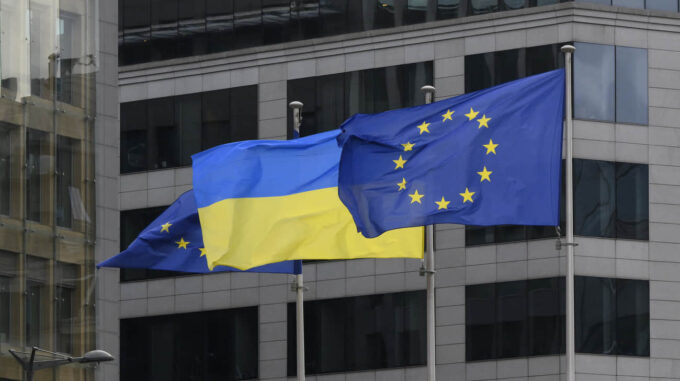The European Union is strengthening its sanctions measures against Russia during this difficult period, trying to maximumly halt and restrict its aggressive actions

After the official adoption of the 17th sanctions package on May 20, representatives of the EU and Ukrainian authorities have begun actively preparing for the next steps in this direction. Specifically, this week, President Volodymyr Zelensky discussed again with President of the European Commission Ursula von der Leyen the prospects of implementing further sanctions mechanisms, including the 18th package, which foresees additional painful restrictions for the Kremlin. The meeting, held on Tuesday, May 20, marked an important stage in coordinating joint actions aimed at significantly increasing economic pressure on Russia. According to information published on Zelensky’s and von der Leyen’s social media, the parties jointly discussed in detail the concept of future sanctions aimed at stopping the financing of the Kremlin’s military machine and reducing the impact of Russian resources on the global market. The main goal of these measures is to make it as difficult as possible for Russia to conduct its war, preventing the possibility of circumventing existing restrictions. The President of the European Commission emphasized that now “is the time to intensify pressure on Russia to make it cease its aggression and move toward a diplomatic resolution of the conflict.” Von der Leyen also underlined that the additional sanctions will have a “more painful character,” focusing on sectors such as energy infrastructure and finance. In turn, Zelensky confirmed the importance of such steps, expressing support for further strengthening of economic restrictions. He emphasized the need to strictly “limit the Russian tanker fleet,” which is used to finance Russian military operations and bypass existing sanctions. “These schemes must be closed to stop the funding of Russian aggression and to promote peace,” he said. The conversation also covered the details of the preparation of the 18th sanctions package, which will mainly focus on the oil sector, banking and financial schemes, which are most painful for the Russian economy. The Ukrainian president paid particular attention to “unblocking” the operation of the energy sector and blocking infrastructure related to the trade of energy resources, as these are an integral part of the ongoing pressure strategy. Another important aspect discussed was the diplomatic consultations with American colleagues. Zelensky and von der Leyen, in particular, examined in detail the results of the recent conversation with U.S. President Donald Trump, which took place on May 19. This indicates close coordination and a unified stance of the EU and Ukraine in the fight against Russian aggression, which is becoming more diverse and systemic every day. It should be recalled that on May 20, the European Council officially approved the 17th sanctions package against Russia in response to its aggressive actions against Ukraine and the use of banned chemical weapons. This set of restrictions includes sanctions against numerous Russian enterprises and individuals, including those involved in hybrid destabilization activities against EU countries and their partners. Work is also ongoing to prepare further measures that will be even more destructive for the Russian economy, contribute to its isolation, and likely help achieve the long-awaited peace in the region. Based on recent events, it is evident that the European Union is increasingly accelerating its efforts in response to Russian aggression, aiming to make it as difficult as possible for the Kremlin to wage war and to ensure peace in Ukraine and Europe as a whole.

